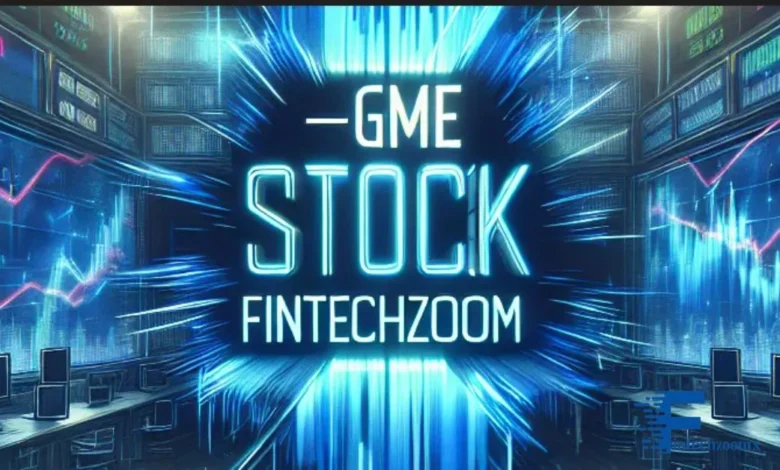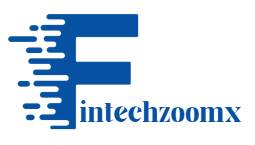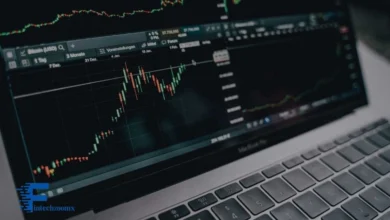Fintechzoom GME Stock: GameStop Market Insights

Introduction
The term “fintechzoom GME stock” has increasingly gained traction among investors, financial enthusiasts, and market analysts. GameStop (NYSE: GME) remains one of the most iconic stocks in recent history due to its unprecedented volatility driven by retail investors, short squeezes, and social media movements. This article delves into GameStop’s stock performance, the role of fintech platforms like Fintechzoom, and the factors influencing its trajectory. By understanding these dynamics, investors can gain clearer insights into the stock’s potential future and inherent risks.
What is GameStop (GME) and Why is it Significant?
GameStop, a brick-and-mortar video game retailer, was founded in 1984. While the company enjoyed success during the early 2000s, the rise of digital downloads and e-commerce posed challenges to its business model. By 2020, GameStop’s stock was on a downward trend due to declining revenue, growing debt, and an outdated retail strategy.
However, in early 2021, GameStop became the epicenter of a financial revolution. Retail investors, particularly from Reddit’s WallStreetBets community, targeted the heavily shorted stock, causing a massive short squeeze. This surge drove GME’s stock price from around $17 in early January 2021 to an all-time high of $483. Fintech platforms like Fintechzoom provided real-time updates and analysis, making the term “fintechzoom GME stock” a go-to source for investors seeking the latest news.
Role of Fintech Platforms in GME Stock Analysis
Fintech platforms, including Fintechzoom, play a pivotal role in disseminating financial information. These platforms offer:
- Real-Time Data: Immediate updates on stock prices, trading volumes, and market trends.
- Analytical Tools: Insights into stock performance, technical indicators, and market sentiment.
- Educational Resources: Articles, tutorials, and expert analyses to help investors make informed decisions.
For “fintechzoom GME stock,” these platforms provided crucial information during GameStop’s volatile phases. By offering real-time data and expert commentary, Fintechzoom helped both retail and institutional investors navigate the stock’s unpredictable movements.
Key Events Impacting GameStop’s Stock Price
The Short Squeeze of January 2021
The short squeeze of January 2021 remains the most significant event in GameStop’s stock history. Here’s a breakdown of what happened:
- High Short Interest: Hedge funds and institutional investors had bet against GameStop, with short interest exceeding 100% of the available shares.
- Retail Investor Movement: Communities like WallStreetBets rallied to buy and hold GME stock, driving up the price.
- Short Covering: As the price soared, short sellers were forced to buy back shares at a loss, further inflating the price.
Fintechzoom’s coverage of this event helped investors track the stock’s meteoric rise and understand the mechanics behind the short squeeze.
Ryan Cohen’s Influence
In 2020, activist investor Ryan Cohen, co-founder of Chewy, joined GameStop’s board. His vision for transforming GameStop into a more digital and e-commerce-focused company revitalized investor confidence. Cohen’s involvement led to strategic shifts, including:
- Leadership Changes: New executives with tech and e-commerce experience.
- E-Commerce Expansion: A stronger focus on online sales and customer engagement.
Fintechzoom highlighted Cohen’s role, making “fintechzoom GME stock” a relevant search term for investors tracking these strategic developments.
Market Sentiment and Investor Behavior
Retail vs. Institutional Investors
GameStop’s journey reflects a broader power shift in the market. Traditionally, institutional investors dominated market movements. However, the GME saga demonstrated the growing influence of retail investors armed with fintech tools. Platforms like Fintechzoom enabled these investors to access real-time information, leveling the playing field.
Social Media Influence
Social media platforms like Reddit, Twitter, and TikTok played a critical role in GameStop’s stock surge. Memes, posts, and viral trends fueled mass buying, with fintech platforms amplifying this information.
Risks and Volatility of GME Stock
Despite its popularity, GME stock remains highly volatile. Investors should consider the following risks:
- Business Model Challenges: GameStop still faces competition from digital game distribution platforms.
- Market Manipulation: The potential for market manipulation through coordinated buying or shorting remains high.
- Regulatory Scrutiny: Increased scrutiny from the SEC and other regulators could impact trading dynamics.
Fintechzoom frequently addresses these risks, helping investors make balanced decisions about GME stock.
Future Outlook for GameStop
The future of GameStop largely depends on the company’s ability to:
- Innovate its Business Model: Expanding digital services and adapting to market trends.
- Maintain Investor Confidence: Continuing transparency and strategic leadership.
- Navigate Market Volatility: Managing short interest and social media influence.
Fintechzoom’s ongoing coverage ensures that investors remain informed about these developments. As a result, “fintechzoom GME stock” continues to be a critical resource for those tracking GameStop’s evolution.
Conclusion
The term “fintechzoom GME stock” encapsulates the modern financial landscape where fintech platforms, social media, and retail investors intersect. GameStop’s story is more than a stock phenomenon; it represents a shift in how market power is distributed. For those seeking the latest insights, platforms like Fintechzoom offer valuable resources to understand and navigate the complexities of GME stock.
For more insights on the latest stock trends, check out our detailed analysis on Apple’s stock performance.





